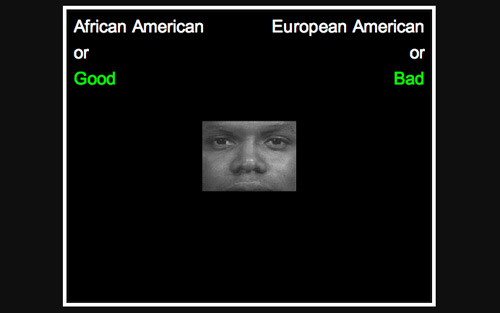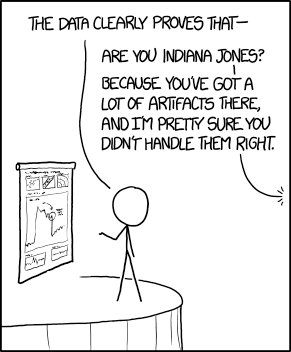Guest post by Jeff Mosenkis of Innovations for Poverty Action.
- As described in a long piece from New York Magazine, millions of people have been told by a Harvard psychology website they are secretly racist, despite no consensus on the underlying research. You may recall the debate where Hillary Clinton referenced “implicit bias” responding to a question about police shootings. She was referring to a prominent line of research in psychology based on the Implicit Association Test (IAT). The computerized test measures millisecond differences in reaction times and has been promoted by prominent researchers, including the chair of Harvard’s psychology department, as a measure of unconscious bias. Millions of people who have taken it, often as part of training, for school, or a job, conclude they are unconscious racists. However, as the piece describes, measurement experts have pointed out that it’s not clear what the test measures, how reliable it is, or what it predicts (TL;DR there are questions about both internal and external validity). In part because it’s based on millisecond differences in reaction times, results can vary widely based on arbitrary decisions by the researchers in how to score it, and studies can be heavily influenced by outliers. Critics worry that the aura of science and promise of a direct route to the unconscious may also be a red herring, distracting from clear evidence of explicit bias in areas like policing.
- Two University of Washington professors offer a syllabus for a course they’re proposing, “Calling Bullsh*t.” It covers how to distinguish fact from fiction in science, statistics, and news (you can follow them on twitter @callin_bull).
- It actually pairs well in name and content with the syllabus you may recall about the replication crisis.
- Lessons from the flat screen TV industry on why trade protectionism ultimately may undercut domestic industry anyway (summary: innovation happens abroad if you stop it from happening domestically, and ultimately products find a way to get around the tariffs anyway.)
- Analyzing a survey of prominent economists’ opinions, sociologists argue that they aren’t polarized, but clustered:
Moreover, we argue that social clustering in a heterogeneous network topology is a better model for disciplinary social structure than discrete factionalization. Results show that there is a robust latent ideological dimension related to economists’ departmental affiliations and political partisanship. Furthermore, we show that economists closer to one another in informal social networks also share more similar ideologies.
- In Uganda, Malawi, and Chile, Dupas, Karlan, Robinson & Ubfal find that simply making it easier to access bank accounts is not enough to help the poor save more.
- Life in authoritarian states is mostly boring and tolerable.
Keep this handy for your next conference (And if you ever don’t get an XKCD reference, check the explain XKCD wiki.)




One Response
As described in a long piece from New York Magazine, millions of people have been told by a Harvard psychology website they are secretly racist, despite no consensus on the underlying research.
golu dolls
golu dolls